“I am a manager. I should know how I can evaluate my project and how to present it to a donor and how to make an implementation for it, so the topics were very useful for me”. Fellow, AF 2010 Cycle
“I am prepared to actively take part in meetings and hold presentations. I will start to implement my job according to project implementation methods which I have learned in this program”. Fellow, AF 2011 Cycle
GRAPHIC REPRESENTATION OF A TYPICAL AFP CYCLE
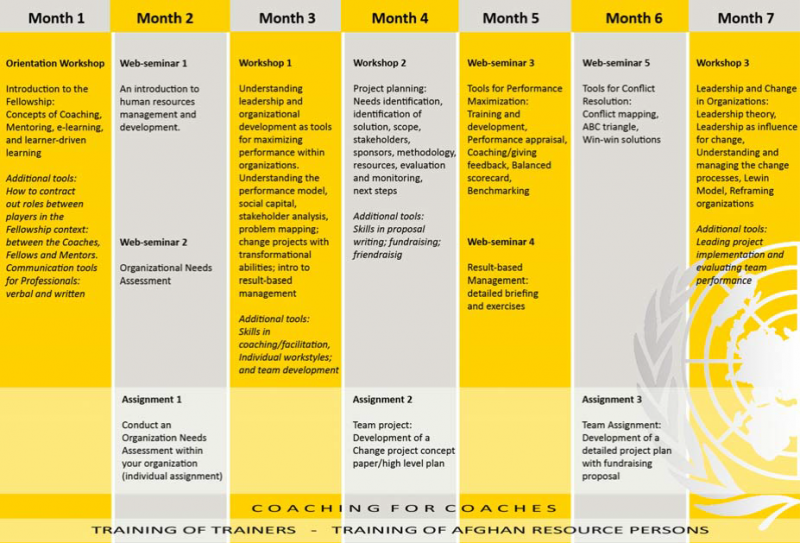
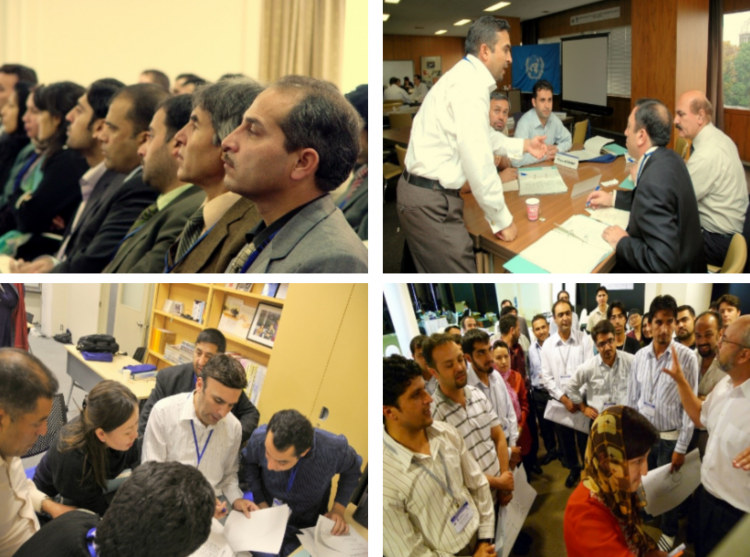
THE PEOPLE INVOLVED:
The Fellowship utilized several layers of enhanced and continued learning, allowing for the development of an indigenous community able to contextualize/adapt the themes of the program to changes in Afghanistan. These mutually reinforcing layers included:
FELLOWS
- First time participants in the program. Fellows were the main beneficiaries of the cycle, divided into groups at the beginning of the Fellowship.
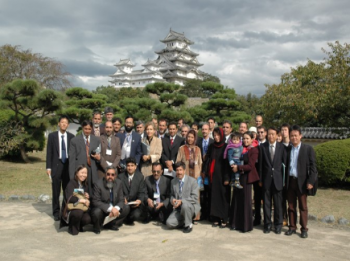
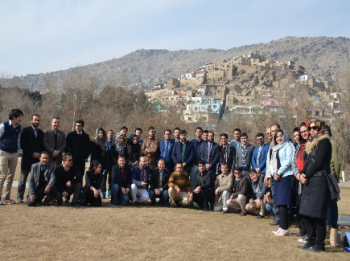
COACHES
- Selected from the stand-out Fellows of previous cycles, and tasked with providing unity and guidance to the group;
- were also responsible for being the main contact between Mentors and the groups as a whole; and
- received additional “Coaching-for-Coaches” training so that they could continue their professional development while being equipped with the skills to coach their group.
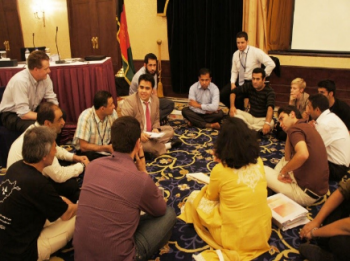
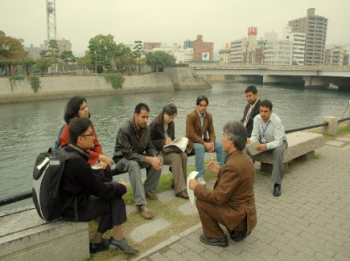
|
Coaching for Coaches Module:
The Coaching for Coaches Module offered eight web-based sessions and two on-site working sessions through each cycle year. The on-site working sessions also included Fellows and Mentors, ensuring that all players developed a better understanding of their roles and what was expected of them. To provide an element of continuity, the Coaches for the next cycle were selected from the Fellows who had already participated in these working sessions. The aim of the on-site sessions was to help Coaches widen their focus from individual development, to planning for the Fellowship and Afghanistan’s capacity-building.
|
AFGHAN RESOURCE PERSONS (ARPS)
- Selected from the stand-out Coaches of previous cycles, ARPs acted as apprentice faculty and worked to contextualize and adapt the training being offered to the changing realities in Afghanistan;
- were also offered further training in a module specifically designed for them, examining social entrepreneurship.
|
ARP Module – Vision and Curriculum:
In the Long-term - ARPs to develop into facilitators and leaders of change.
Within the Fellowship – Facilitating/training to build capacities among Fellows; Be Mentors to Coaches and work with them to reinforce the Coaching for Coaches module and requirements; Be responsible for organization of Fellowship Community and highlighting the social capital available to Alumni when needed – activities and documentation; Developing concepts for social entrepreneurship projects cashing in on social capital networks within and outside the Fellowship.
MODULE I: Training as Trainers/Facilitators
MODULE II: Community Mobilization to Harness Social Capital in Networks (Interaction of Govt. and Social Capital, Community Mobilization, Peer to Peer Mentoring Networks.
MODULE III: Leadership and Social Entrepreneurship
|
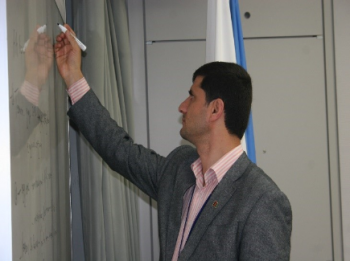
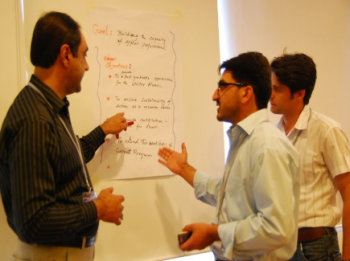
MENTORS
- Mentors were experts, practitioners or academics in various disciplines
- from numerous countries, willing and able to volunteer and share their knowledge, to guide and advise when requested, and at ease in a two-way learning relationship;
- Mentors/Mentor teams, together with the Coaches were asked to commit to overseeing at least one group of five to six ‘mentees’ for the duration of each Cycle;
- sometimes also acted as Faculty/Resource Persons.
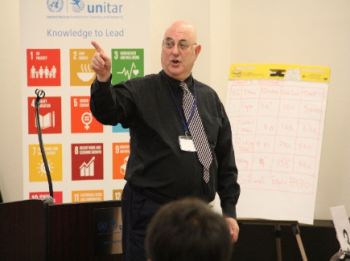
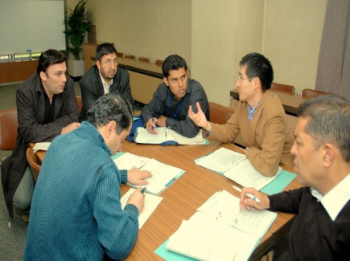
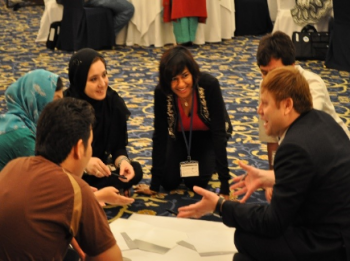
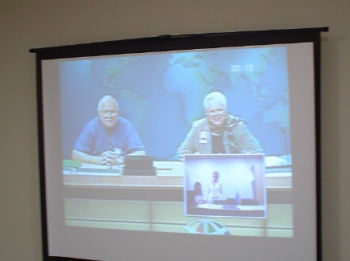
FACULTY/RESOURCE PERSONS
- Faculty/Resource Persons were involved in curriculum development, and facilitation and presentation at workshops and seminars, either in-person or electronically.

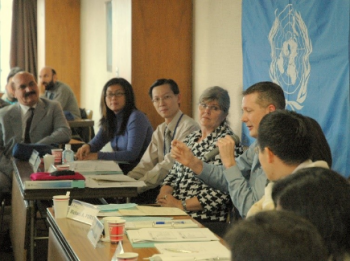
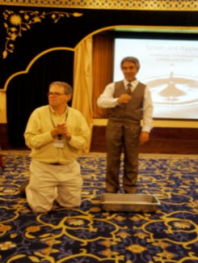
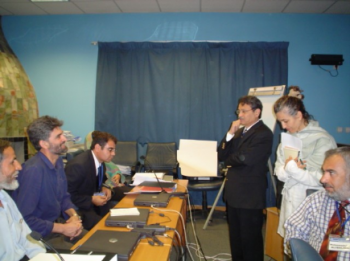
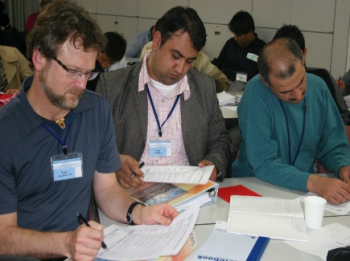
PROCESS
Throughout the Fellowship process, participants utilized the training offered in a number of assignments and projects, which were both peer- and Mentor-reviewed. This served to reinforce the themes of the Fellowship, and instilled from the beginning a learning-by-doing element into the training architecture.
TEAM PROJECT WORK
- ASSIGNMENT I
-
- Each Fellow undertook an organization/needs assessment in her/his workplace for one of the following purposes:
- To determine the needs and service requirements of a population or customer group served by the Fellow’s organization;
- To determine the capacities and priority needs of the Fellow’s organization in order to more effectively support the organization’s mission; or
- To determine the capacities and priority development needs of a particular group of employees within the organization (e.g., supervisors, engineers, scientists, teachers, secretaries, etc.)
In the weeks in between Workshops I and II, Fellows were offered guidance by UNITAR’s team of Mentors, Coaches and Afghan Resource Persons. Following individual presentation of the findings of Assignment One at Workshop II, each team then used the results of the organization needs assessments to decide on a team project.
- ASSIGNMENT II
- Assignment II tasked teams with developing a concept paper in the form of a high-level Project Plan. Elements of the Fellowship covered in Workshop II contributed greatly to the development of Assignment II. This process was also focused upon by the Coaches, ARPs and Mentors, and discussed at length during Audio Conferences.
- ASSIGNMENT III
- Assignment III called for the development of a team project plan for organizational development or change projects for Afghanistan. Through a formal presentation involving all group members, a report was made upon the development of a detailed project plan for the team’s organizational development or change project as developed through Assignments I and II.
TRAINING TOOLS
The Fellowship offered four workshops held throughout the process, typically two in Kabul, one in Hiroshima and one alternatively in Abu Dhabi, Singapore or Dehrdun.
CURRICULUM EMPHASIS ON LEADERSHIP AND MENTORING:
Endeavoring to widen the impact of the Fellowship, UNITAR placed special emphasis on methodology and skills development related to leadership and mentoring. The objective was to develop the capacity of each Fellow to be a facilitator able to contribute to organizational and human resource development within his/her respective ministry or organization.
The outcomes of the projects undertaken by most of the teams indicated that this objective was met with considerable success. Special efforts were also made to ensure the Fellows’ team projects focused on management of change and organizational development, and the necessary skills and knowledge to support the process were included as the recurring themes throughout the Cycle curriculum.
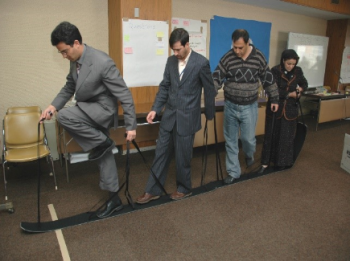
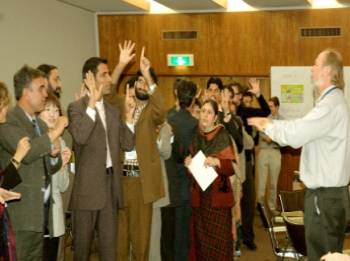
COMBINATION OF DIFFERENT TRAINING METHODS:
The Fellowship undertook a combination of different training methods with a series of skills-building activities, including:
- On-site workshops
- Study-trips
- Mentor/ARP/Coach/Fellow communication
- Team projects
- Distance learning activities
VIDEO SEMINARS
Throughout the Fellowship, Video Seminars linked Fellows, as a group, to AF Faculty around the globe. Presentations delivered during such events corresponded to the phase in the Fellowship at which the Fellows found themselves and included, amongst others:
- Tools For Maximizing Performance
- Training as A Capacity Development Tool
- Conflict Resolution
- Leadership Development
- Risk Identification and Mitigation
- Results Based Management
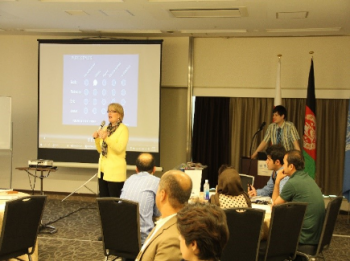
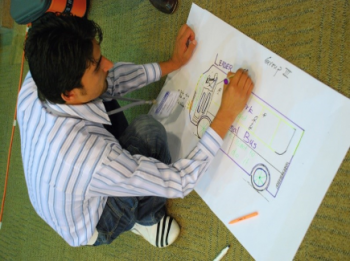
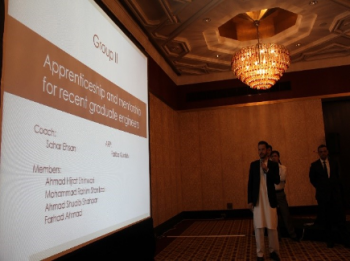
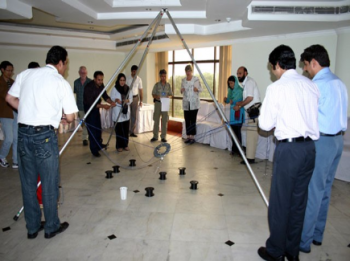
AUDIO CONFERENCES
All groups connected via Skype to both UNITAR and their Mentors monthly, so that the project and Fellowship process could be discussed. Standing as milestones in the program, these video conferences were augmented by ad-hoc discussions between group members, Coaches, ARPs and Mentors.
|
Snapshot of a typical cycle (2010):
60% Government, 36% NGOs and Pvt Sector, 4% Academia, 28% Women
Fellows: 52
Coaches: 10
Mentors and Resource Persons (international): 27
Hiroshima University, Japan (1), Tokyo University, Japan (1), UNITAR Hiroshima Office, Japan (1), University of Texas at Austin, USA (7), University of Calgary, Canada (10), Singapore International Foundation (4), Lamb and Lamb Associates, USA (2), and Microsoft Corporation, USA (1).
Afghan Resource Persons (Fellowship Alumni): 5
Activities:
Five Workshops and two study trips to Singapore and Japan respectively:
Launch: Orientation Workshop
Workshop I - “Leadership & Organizational Development for Performance and Results”
Workshop II - “Project Planning & Proposal Writing”
Workshop III - “Leading Change in Organizations – Change strategies, project implementation and team management”
Cycle After-Action Review and Lessons Learned
Five Seminar Series on Human Resource Development and Management (HRD&HRM):
-
- “Introduction to human resources management and development”
- “Organizational Needs Assessment”
- "Tools for Performance Maximization"
- "Result-Based Management"
- "Tools for Conflict Resolution "
High-level Roundtable in Hiroshima on Post-conflict Reconstruction
Topic: “The importance of history and culture in post-conflict reconstruction – Reflections from Hiroshima to Afghanistan”.
Distance learning: regular e-mail communication with Mentors, video-conferences, and a minimum of twelve scheduled audio-web conferences and project-work sessions for each group
Coaching for Coaches Module: Coaches and Afghan Resource Persons were trained through web conferences and on-site sessions.
New elements:
- Partnering with Alumni Association (ACTRA) to jointly host the four-day Orientation Workshop, managed, conducted and evaluated by Fellowship Coaches and ARPs.
- Singapore International Foundation (SIF) expanding support for the program
- Partnering with ACTRA and local sponsors to jointly host the Cycle After-Action Review Seminar in Kabul conducted by Coaches and ARPs.
- Expanded roles of Coaches and ARPs in content and mentoring of Fellows and Coaches respectively.
- Expansion of module on Coaching for Coaches given by Microsoft Corp.
- Group/team project in the area of community development
- U of C and UTA expanding their involvement with the Fellowship by increasing the number of Mentors in their mentoring teams
|
























